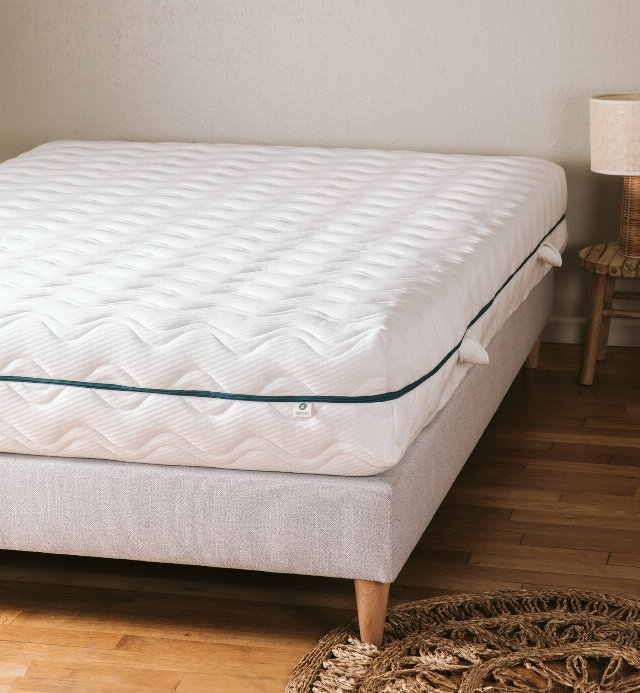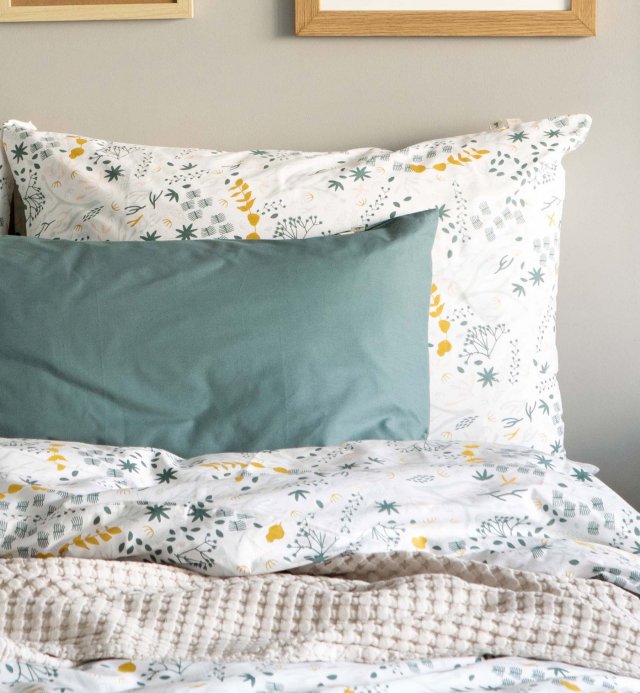Making your bed in the morning, a good or bad habit? Some people hate making their bed and don't see the point of making their bed in the morning to unmake it at night, so they leave the comforter rolled up on their bed all day. Others can't stand the sight of a messy bed and fold up the comforter as soon as they get up so that the bed is spotless. It's a personal preference, but who's right?
The bed, a cozy little nest... for dust mites!
A study conducted by researchers at the Immunology Centre at Kingston University in England in 2006 showed that putting your sheets and comforter back in place as soon as you wake up creates an environment conducive to the development of dust mites. These little creatures love the heat and humidity that we produce while we sleep, and they develop at a high rate. 1.5 million dust mites are said to be present in our bed, which causes many allergies, and if the sheets are not aired, the dust mites stay warm in the hollow of the bed and develop quietly...
The solution to prevent the proliferation of dust mites would be to leave the bed open so that it can be aired all day, and then to make the bed at night before going to sleep! Bedwetters will surely hate this idea!
The solution for a well-ventilated bed and a tidy bedroom
For many of us, it is inconceivable to leave the bed unmade all day long, but how can we limit the proliferation of dust mites while keeping the room tidy and well decorated like in the magazines?
The solution is to let the bed air out as soon as you wake up, by opening the bedroom window for a few minutes, before making your bed again. Indeed, dust mites can be eliminated thanks to the fresh air and the sun.
Once the bed is aired, you can put the comforter and the pillows back in place.
According to the principle of Feng Shui, our interior reflects our state of mind, so a messy house is not recommended to feel good and have a light mind. Making your bed in the morning is a way to clear your room and your mind in order to better face the day.
Limit the proliferation of dust mites with natural materials
Dust mites and other bacteria thrive in warm, moist environments. When we sleep, we produce heat and sweat, it is possible to lose up to 1 liter of water per night! Night sweating is accentuated by certain pathologies, but also by certain synthetic materials such as foam mattresses and polyester sheets.
In order to limit perspiration during sleep, it is advisable to choose a mattress made of natural materials, allowing for better air circulation. Coconut fiber and natural latex mattresses allow for better temperature regulation than foam mattresses, and also naturally limit the proliferation of dust mites.
Bedding also plays a role in sleeping comfort. Synthetic materials promote perspiration, while natural materials such as cotton, preferably organic, linen or Lyocell allow good air circulation between the fibers and therefore better temperature regulation. In sheets made of natural materials, sleep is therefore of better quality and the proliferation of bacteria and dust mites is limited.














Leave a comment